The town in Belarus from where cigarettes are smuggled to the UK
- Published
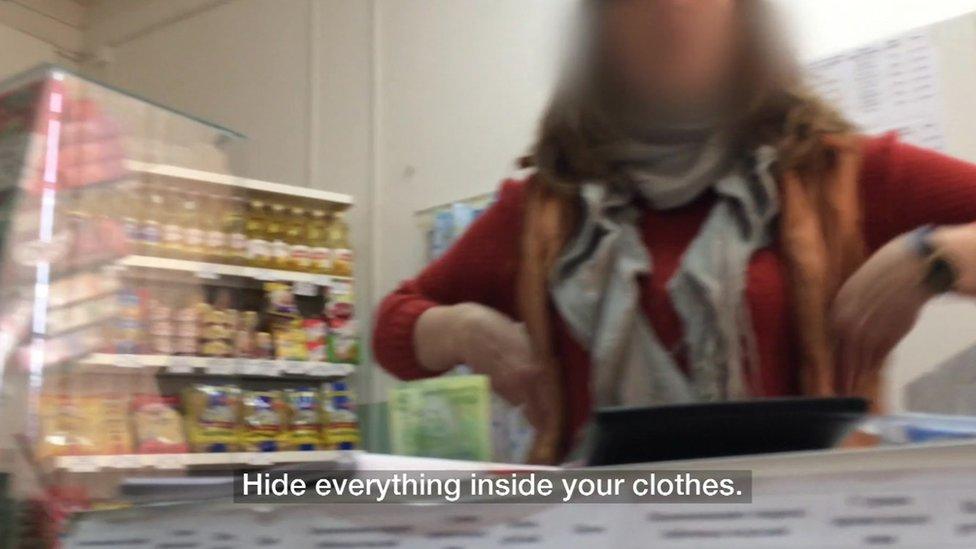
A woman in a shop in Belarus gives tips on smuggling cigarettes
A town in Belarus is producing billions of cigarettes a year, about a third of which are thought to be smuggled to the EU. How do they end up in the UK and what measures are taken to stop the illegal trade?
We pull into Grodno in the west of Belarus - effectively the last communist state in Europe and some say the "last dictatorship" too. In the most recent elections President Alexander Lukashenko was re-elected with 83% of the vote.
On the outskirts stand Soviet-era tower blocks, 15 storeys of cracked paint and crumbling brickwork.
But it's the long, yellow building with grilles on its windows stretching along Harnavych Street that we have come to see - the "Neman" cigarette factory.
It produces more than 20 billion cigarettes per year, but a third of them are thought to end up being smuggled into the European Union.
In the UK, 610 million cigarettes illegally sold in 2015 were estimated to have originated from Belarus.
How sniffer dogs in Liverpool are helping to uncover some traders' hiding places
Packets can be bought in Belarus for the equivalent of 40p but sold in the UK for as much as £3, making the illegal trade highly lucrative.
The cigarettes, with brand names such as NZ, Minsk and Fest, are made only for the market in Belarus and cannot be legally sold in the UK because no tax is paid on them.
Recent figures from HMRC put the amount of tax lost to the Treasury from the sale of illegal cigarettes at £1.6bn last year.
We did not receive permission to enter the factory or talk to the management. "The production of tobacco products is a commercial secret of the enterprise," we were told.
There is no evidence that the factory promotes the illegal trade.
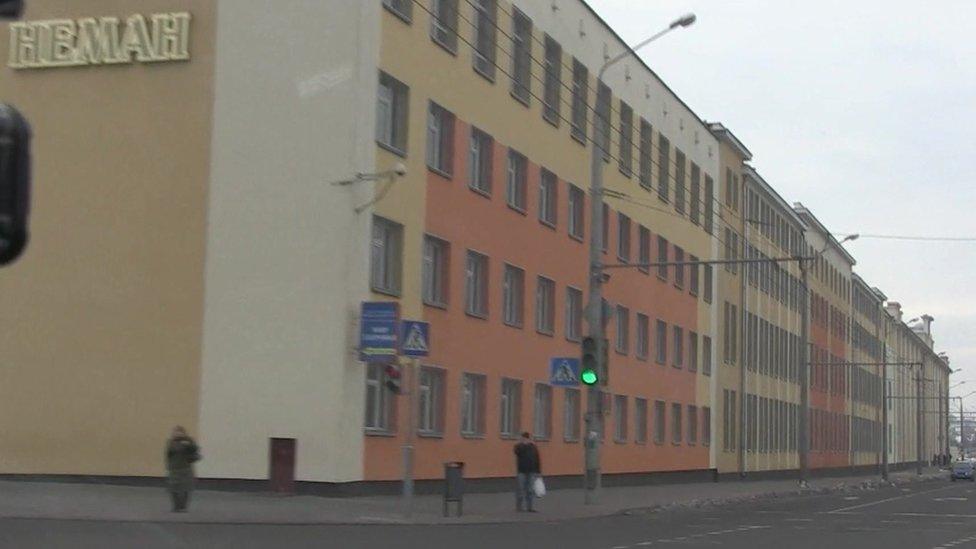
The "Neman" factory produces more than 20 billion cigarettes per year
Within a mile of the factory on the road to the Polish border we find a shop selling cigarettes 24 hours a day.
I ask the shop assistant how many I can buy and am asked "How many do you want?"
I tell her I want to take them to Lithuania and she advises me to hide them in the car.
Later we meet Viktor, who used to smuggle back in the 1990s and even wrote a book about it. He says people smuggle because the economy is in trouble and if you do not have a job in Belarus you have to pay the government a fine. Smuggling is how some people get the money for the fine.
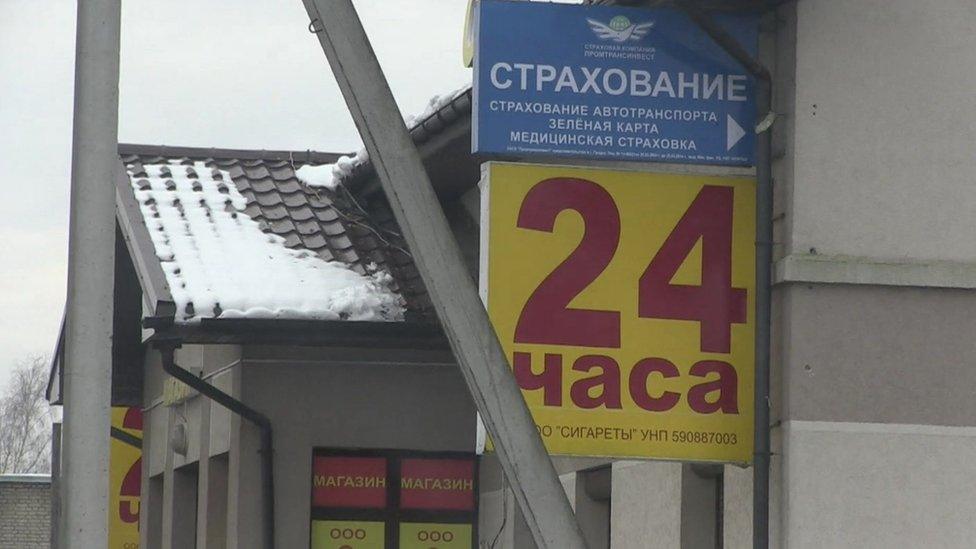
24-hour shops in Belarus sell the cigarettes
On the same road closer to the border we found another shop, again open 24 hours a day.
The rules about taking cigarettes into the EU are clear - only two packs per person.
The assistant again says we can buy as many as we like and even gives us advice on how to get them past customs and into the EU.
She suggests hiding them "about your body" and says people also make holes in their cars to hide them.
The assistant freely admits her shop is used by smugglers.
A recent report suggested 12% of all the cigarettes smuggled out of Belarus ended up in the UK.
'Two priorities'
Countries on the edge of the EU are stepping up efforts against the trade.
A patrol of Lithuanian border guards is checking the border fence with Belarus.
"We have two priorities, illegal immigrants and cigarette smuggling" says Border Guard Karolis Tumosa.
Smugglers often arrange to meet and simply throw packs over the fence.
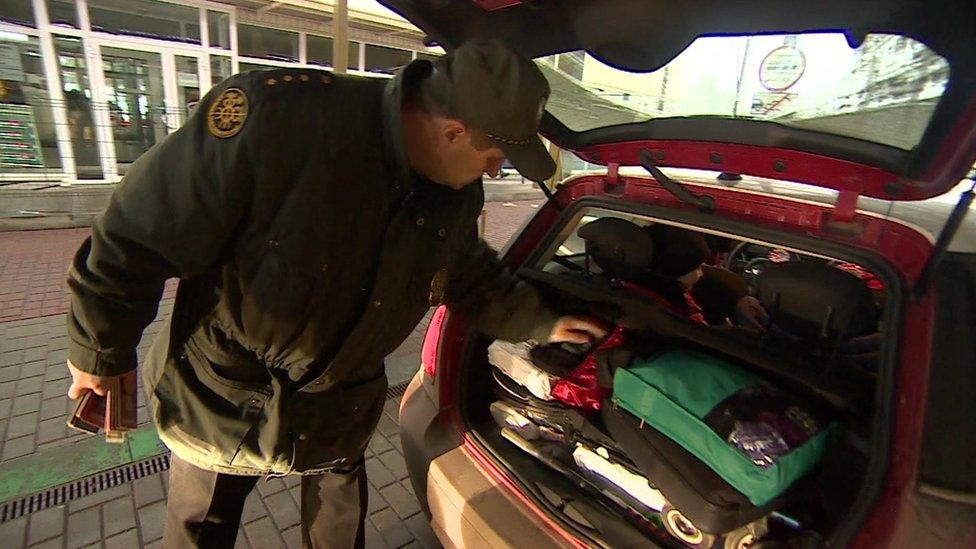
Countries on the edge of the EU are stepping up efforts against the smugglers
They have also used drones and GPS-tracked rafts on the Neman river.
At the nearby border post we are shown a lorry, found to have a false roof with 12,000 packets hidden underneath.
The Grodno cigarettes can be bought in markets across Lithuania for the equivalent of £1.50.
But the real money is to be made sending shipments on to Germany, Italy and the UK. So how do they get there?
Channel Tunnel
Jonas, not his real name, was a Lithuanian police officer who also had a sideline in smuggling.
He was caught, sacked and sent to prison.
He tells us smuggling is easy.
"Mostly they use minivans, or take the cigarettes on planes," he says. "It's more difficult to smuggle large amounts.
"The main route is through Calais and the Channel Tunnel. I went that way myself.
"Some go in large shipping containers, but most go on minibuses which have had hiding places prepared beforehand.
"You can fit up to five boxes into one bus or truck, all hidden so that nobody can find them."
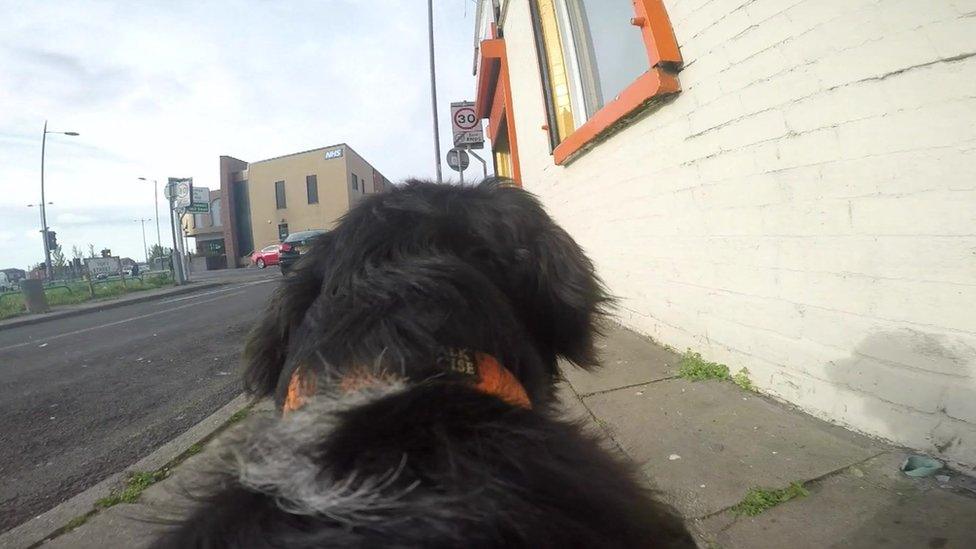
Bert the sniffer dog finds illegal cigarettes
We do our own research in shops and online in east London.
Within two hours we have bought the same brands from four separate sources.
The first is a newsagent, a woman then meets us in the street, and another seller turns up in her car with a baby in the passenger seat.
We also spend a morning with Liverpool trading standards officers searching shops in the city.
In one shop Bert the sniffer dog leads his handler to a concrete step covered by a piece of carpet.
Hidden behind fake bricks are a secret compartment and a hidden drawer. Inside are cigarettes from Grodno; NZ, Fest and Minsk.
Mark Wainwright from Trading standards describes the problem as "huge". As he loads another evidence bag into the van, he says simply, "On to the next one."
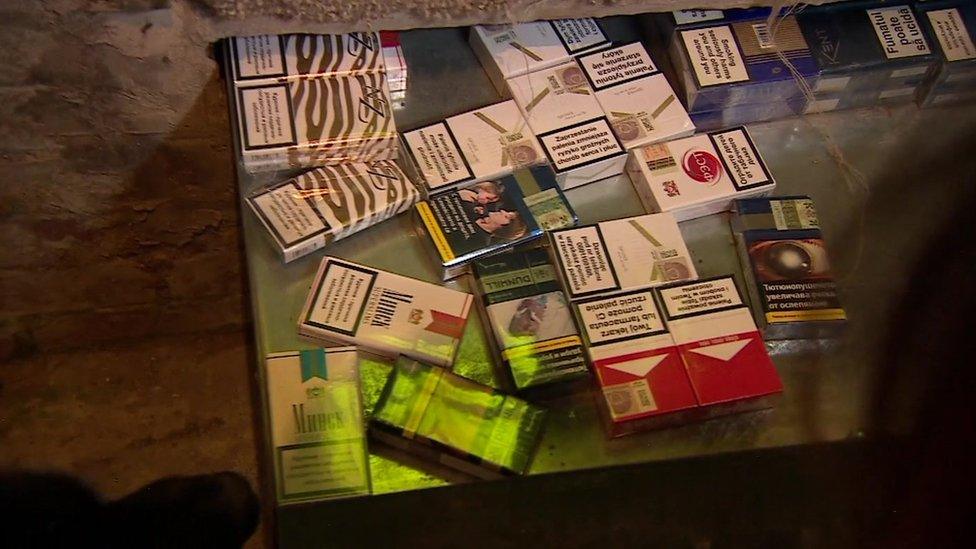
Cigarettes from Belarus were found behind fake bricks in a shop in Liverpool
Newsagents who allow illegal cigarettes to be sold may have to pay a penalty of £5,000.
People caught smuggling large quantities of cigarettes into the UK can face up to 10 years in prison and an unlimited fine.
An HMRC spokesman said: "We are continuing to reduce the amount of illicit tobacco entering the UK from around the globe.
"Our close work with other enforcement agencies to tackle this practice is producing clear results, with over 3.5 billion illicit cigarettes and 599 tonnes of hand-rolling tobacco seized in last two years alone."